Hunter Workers May DayAdvertising Feature
AMWU Hunter members building a brighter future for Aussie manufacturingAdvertising Feature
There's never been a more exciting time for manufacturing in the Hunter.
- AMWU NSW & ACT Acting State Secretary Brad Pidgeon
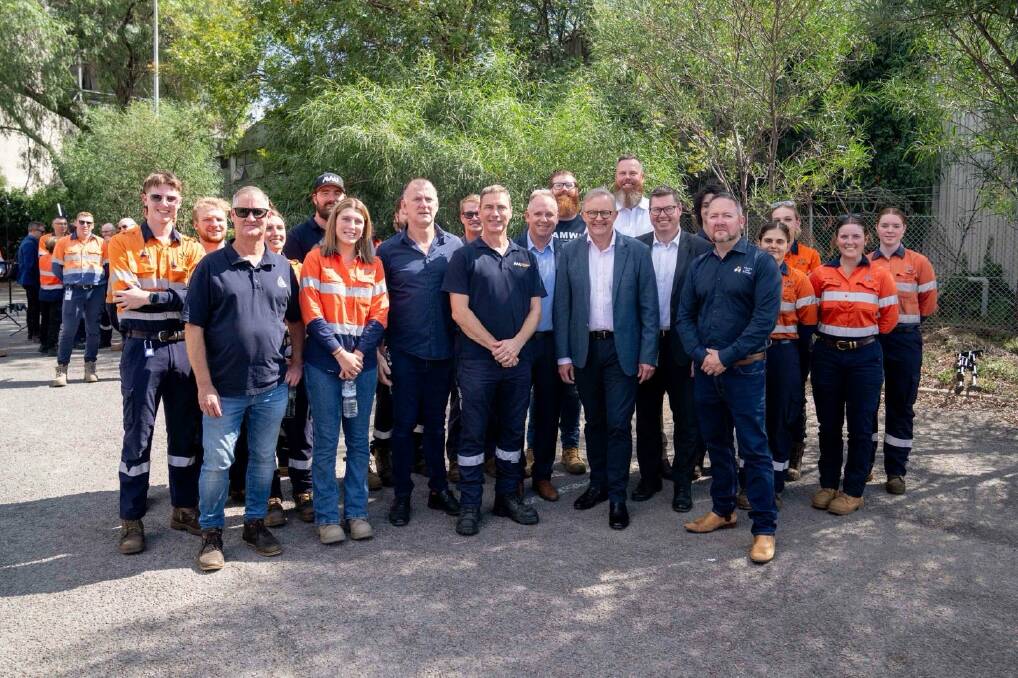
Australian manufacturing has suffered through consecutive Liberal governments.
We rank last in the OECD when it comes to manufacturing self-sufficiency, producing only 68% of what we use.
We need to seize our opportunity to rebuild a strong domestic capability - to produce quality transport and energy infrastructure and to create secure, sustainable jobs.
At long last, Federal and State Governments are taking steps in the right direction, and it's important we get this right.
The NSW Government has announced the beginning of the procurement process for replacements of the Tangara fleet of suburban passenger trains by March 2027, with a focus on achieving a 50% domestic manufacturing rate within the contract. This fleet should be built by skilled workers and apprentices right here in the Hunter, delivering quality-built trains and jobs for Hunter workers.
A vital element of ensuring a strong and sustainable future for the manufacturing industry is training the workers of tomorrow. The Federal Government is investing in 480,000 fee-free TAFE courses to get the next generation of Hunter manufacturing workers in the classroom and on the tools.
The $1 billion Solar Sunshot program will also see funding for the development and manufacturing of solar infrastructure in the Hunter. Currently, a measly 1% of our solar panels are made here in Australia. With almost half a million new solar systems installed each year, this funding will mean lower consumer costs and secure jobs in the Hunter.
On April 11, the Albanese Government announced the Future Made in Australia Act, which will be instrumental in bringing manufacturing back onto Australian shores, transforming our energy grid, revitalising renewables manufacturing here in the Hunter, and securing a greener future for our planet.
"It's been a long time in the making, but as the leading union for manufacturing workers, we welcome the announcement from the Albanese Government," AMWU NSW & ACT Acting State Secretary Brad Pidgeon said.
"For too long, Australian workers have been denied the opportunity to participate in renewables manufacturing and the development of a vital sovereign capability.
"We grow things here, we dig things here, and it's about time we start building things here too. There's never been a more exciting time for manufacturing in the Hunter, and there's never been a more exciting time to be a member of the AMWU."
Public Service Association members working hard for their state and futureAdvertising Feature
Our members stand shoulder to shoulder with one another, honouring our past and building our future.
- PSA General Secretary Stewart Little
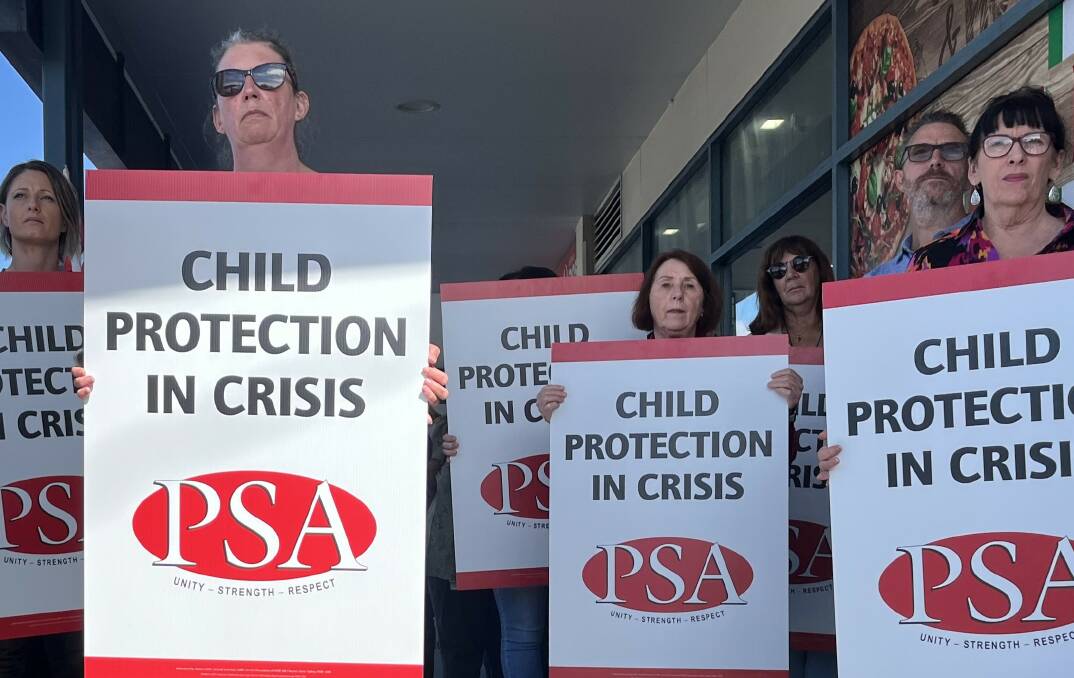
On April 18 2024, child protection workers at Edgeworth Community Services Centre held a stop-work meeting to demand their place of work be saved from closure and that they be properly paid and supported for their vital role in protecting the state's most vulnerable children.
The child protection workers at Edgeworth are members of the Public Service Association of NSW (PSA) and are continuing a 125-year-old tradition of demanding a better deal for themselves and on behalf of the people of the state who depend on a well-funded, independent public sector.
In 1899, a small group of public sector workers met in an office in Sydney to form what they called an association dedicated to preserving the pay and conditions of the public servants in what was then the colony of NSW.
In the ensuing 125 years, the group morphed into one of the most powerful unions in the state.
In that time it has overturned the ban on married women working in the pubic sector, fought for equal pay and earned regular pay rises and improved conditions, such as flexible work, for its members.
In the past year the union's campaigning has won permanent positions for its members in schools, many of whom had languished in insecure, temporary roles for more than a decade.
The PSA has pressured the state government to reverse its disastrous prison privatisation agenda, bringing Junee Correctional Centre into public hands from next year.
The fight goes on. For example, the union is currently fighting for better pay and conditions for the Sheriff's officers who play a vital role in the state's court system and the special constables who protect state infrastructure such as Parliament and Government House.
PSA members are all over NSW. They are in the state's schools, operating our prisons and Youth Justice facilities and are on the ground in national parks.
They are found in offices in cities and in our state forests.
They run our TAFE colleges and universities and are in disability group homes.
In the Hunter, PSA members are in the high-pressure Police Radio centre, as well as the Service NSW call centres throughout the valley and the Office of State Revenue in Maitland.
"PSA CPSU NSW members work hard for the state," said the union's General Secretary Stewart Little.
"Our members stand shoulder to shoulder with one another, honouring our past and building our future."
Hunter workers united on traditional day of international celebrationAdvertising Feature

Internationally, May Day grew out of the struggle for the Eight Hour Day in the 19th Century.
- Hunter Workers
May Day, also known as International Workers Day or Labour Day, has been celebrated throughout the world on May 1st since 1886.
It is the day when the labour movement comes together in unity to celebrate past achievements and to campaign for the current industrial and political issues affecting working people.
Internationally, May Day grew out of the struggle for the Eight Hour Day in the 19th Century.
The Eight Hour Movement was founded on the philosophy that the working day should be limited to eight hours, allowing working people eight hours of leisure and eight hours of rest.
Marches worldwide were led by the Red Flag, to symbolize the blood of the workers that had been spilt, a tradition which we still proudly continue to this day.
May Day holds a very special place for the people of the Hunter.
While Labour Day is officially celebrated in October in NSW, for much of the 20th Century, May 1 was our labour day.
The first Monday of May was gazetted as a public holiday locally until 1963.
The Newcastle Trades Hall Council, now Hunter Workers, traces its origins to the struggle for the Eight Hour Day with the founding of the Eight Hour Demonstration Committee in 1869.
The first local May Day rally was held in Wallsend in 1894. Since that time, Hunter Workers has continued to spearhead local May Day celebrations.
Once the Eight Hour Day was won, local May Day campaigns focused on continuing to improve the rights of workers, including the fight for the 36-hour week, safer working conditions, equal pay, and the right to work, as well as issues affecting our broader communities, including access to health services, education, housing and public transport, Indigenous rights, women's rights, nuclear disarmament and the environment.
Over the last 100 years, May Day celebrations in Newcastle grew to include weekend long festivities that included the Toast to May Day, sporting competitions, dances and concerts, theatre performances, art and poetry contests, as well as the traditional march and family day.
At its peak in the 1960s and 1970s, thousands of community members would line Hunter Street to watch the May Day procession.
May Day is the day the people of the Hunter come together in unity to fight for the issues affecting our working people, our communities, and the future of our region.
NSW Nurses & Midwives' Association raising voices for quality patient careAdvertising Feature
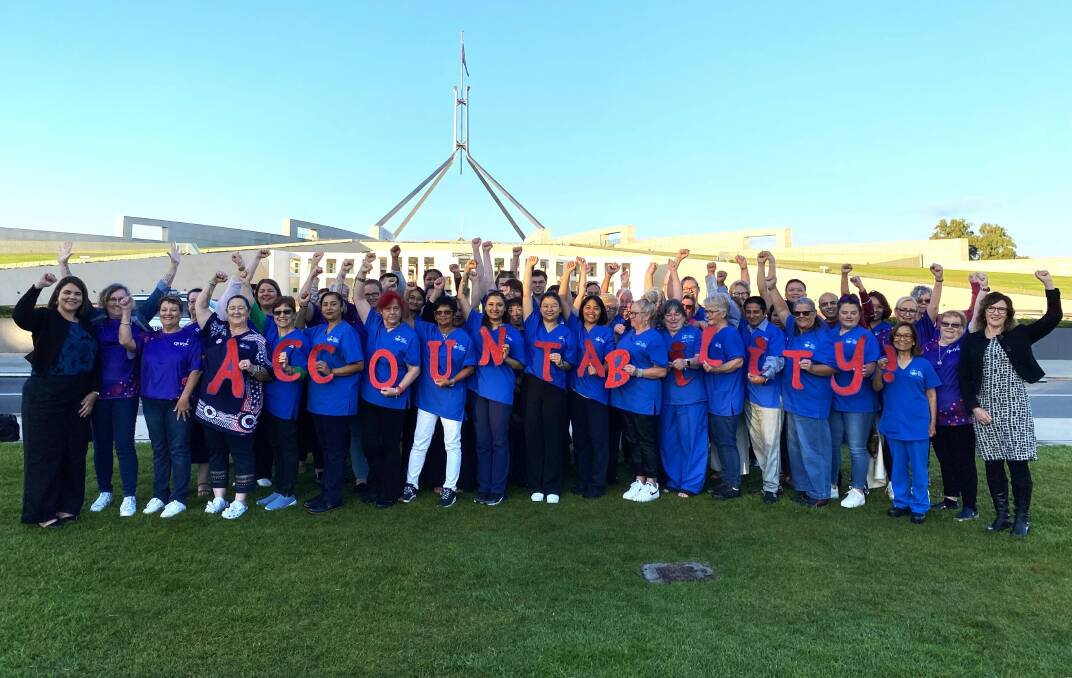
Australians are getting older, faster. In two years' time, more than a fifth of the population will be over the age of 65. The need for quality aged care has never been greater.
We are starting to slowly see improvements in the wake of the damning Royal Commission which exposed an industry in tatters. Last year, the federal government introduced a requirement for aged care facilities to have a registered nurses on-site 24/7 and mandatory care minutes for residents to receive 200 minutes of care a day. It was a major win for the New South Wales Nurses and Midwives' Association (NSWNMA) amidst the ongoing battle for aged care reform. Now, the primary focus has shifted to compliance, and giving workers the legal right to speak up and hold providers accountable.
In March, a delegation of 60 aged care workers descended on Canberra to share harrowing stories with politicians about their workplace plights, pleading with elected officials to take a stand against providers who were not doing the right thing. Aged Care Minister Anika Wells signed our pledge and declared the voices of aged care workers would no longer be silenced on her watch.
After years of being undervalued and underpaid, aged care nurses and carers are finally being recognised. The Fair Work Commission (FWC) has awarded a historic pay increase of 23% to assistants in nursing. The NSWNMA has launched a separate case in the FWC for aged care nurses, and is awaiting a decision.
Valuing nurses and midwives
In female-dominated industries like nursing and midwifery, there is a clear undervaluing of remuneration on the part of governments and employers. Skilled and experienced nurses and midwives are leaving the profession, or moving across the border, to secure better pay and conditions.
NSWNMA General Secretary, Shaye Candish, said nurses and midwives were working harder and longer to provide care to the community.
"They put the care and safety of others before themselves, but when push comes to shove, that respect and admiration isn't reflected in their pay," Ms Candish said. "The community recognises the professionalism and incredible worth of nurses and midwives. It's time for governments and private companies to recognise their value too."
The NSWNMA's decade-long campaign for nurse-to-patient ratios in public hospitals is finally coming to fruition.
"Nurses and midwives' workloads have increased immensely, because of chronic understaffing and growing demand on the health system," Ms Candish said. "We hope these enforceable safe staffing ratios will repair the state's depleted workforce."
The rollout of safe staffing requirements is starting in emergency departments, with the aim that every ward and unit in every hospital will have mandated ratios to keep patients safe. After all, caring is at the heart of every nurse and midwife.
CFMEU working for the future by delivering on decent wages and conditionsAdvertising Feature
We want to get back into the EBA what the ABCC forced us to take out in previous years so that our members' jobs and conditions are secure.
- Darren Greenfield, State Secretary, CFMEU
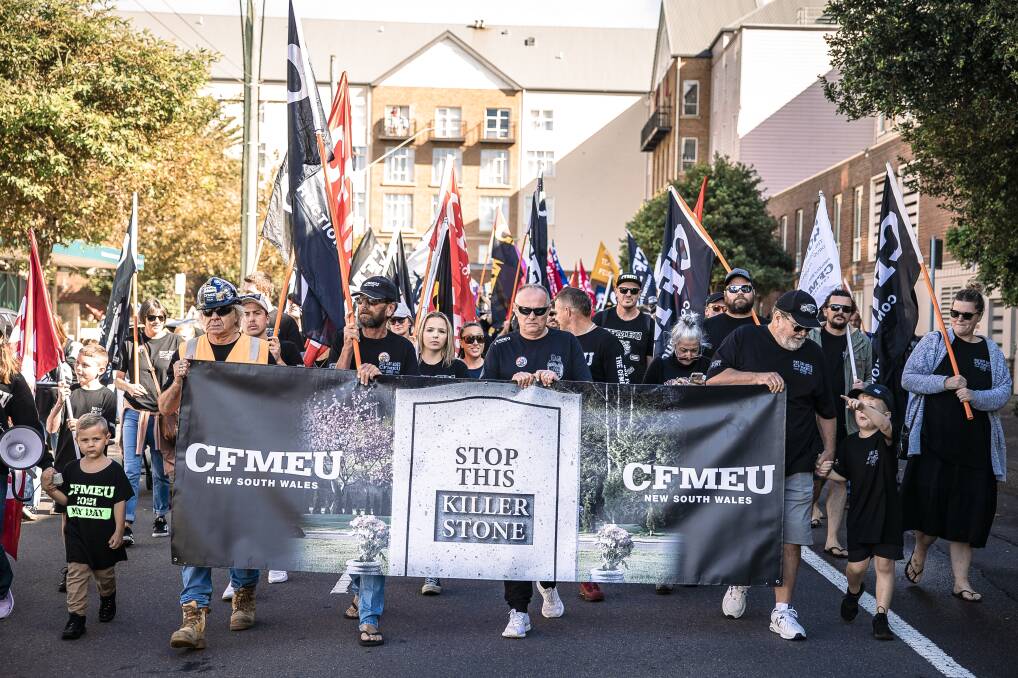
2024 ushers in the new enterprise agreement for CFMEU members on construction sites. This May Day we reflect on the achievements of generations of CFMEU Members in securing decent wage, conditions, and safer jobs and commit to fighting for the future.
In 2024 our members deserve an uplift in wages and conditions as cost of living has soared. Inflation might be sitting at around 4% on average, but basic essentials have sky rocketed; rental price growth above 7%, electricity prices up by 6.9%, insurance prices up by 16.2%, automotive fuel prices up by 5.4%, maintenance and repair of motor vehicle prices up by 3.9% and other services in respect to motor vehicles up by 4.5%, alcohol and tobacco up by 6.6%, food and non-alcoholic beverages up by 4.5% and medical and hospital services up by 6.5%.
Your wallets are copping a beating. To add insult to injury a recent inquiry has found supermarket chains and other businesses are gouging us at the till. "In Australia's less than fully competitive economy the consumer often comes out second best in the battle between producer and consumer surplus."
The profits are going into the coffers of businesses rather than providing much needed price relief. Given the power of the big end of town, we doubt that governments will do anything that will reduce prices.
We also know that our members work tirelessly to get jobs started and finished.
Employers love to talk about the need to improve productivity; you cannot get a more productive workforce than building workers who leave home from 4am, work on average 12-hour days, 6 and 7 days per week.
They deliver on crazily tight building programs and risk injury and death, occurrences of which remain far too common in our industry.
The only answer to all of this is for the CFMEU to deliver on decent wages and conditions which we are 100% committed to doing.
The next round of EBAs will deliver increases in wages, conditions, and better worker rights. We want to get back into the EBA what the ABCC forced us to take out in previous years so that our members' jobs and conditions are secure.
CFMEU members deserve a Rolls Royce EBA, one that not only ensures members can meet their daily living obligations but also allows them to put something away for the family holiday, build superannuation and redundancy balances and deliver meaningful down time.
We want to build on the benefits won in the last round of enterprise agreements. We are looking for member support in achieving the best result for all members and fighting with you to win.
- Darren Greenfield, State Secretary
IEU members united for better wages and conditions in the Hunter areaAdvertising Feature
We wish all working people a happy May Day.
- Independent Education Union spokesperson
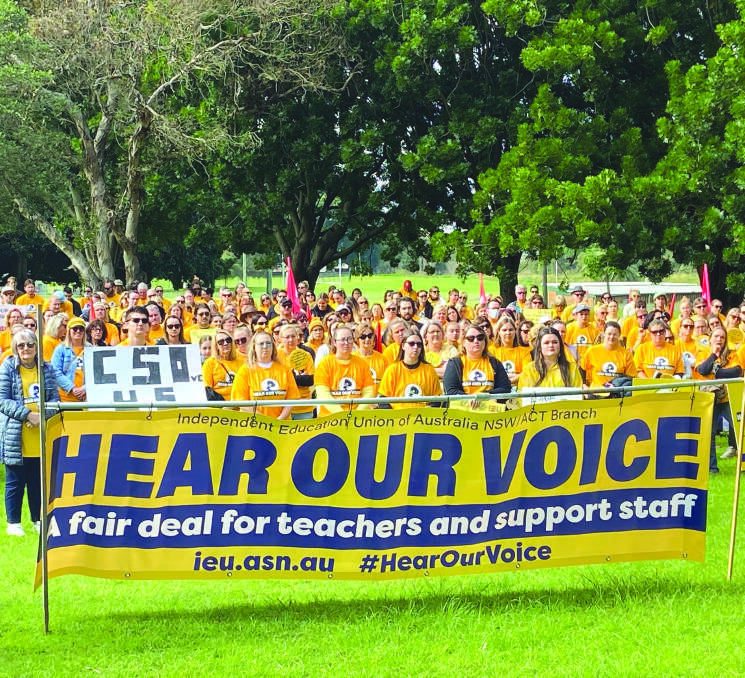
The IEU represents more than 32,000 teachers, principals and operational, administrative and support staff in Catholic and independent schools, early childhood centres and post-secondary colleges.
The IEU has five offices throughout NSW and the ACT, with one on Telford Street in Newcastle.
You may remember Catholic school teachers and support staff marching on Newcastle's streets in 2022, unmissable in bright yellow t-shirts as members called for better pay and working conditions that reflect the ever-increasing demands of the job. The IEU stood united with the NSW Teachers Federation and achieved unprecedented pay rises of 8% to 12% for teachers and up to 20% for support staff. It pays to be a union member.
This year the IEU calling for staff in the Maitland-Newcastle Catholic Schools Office to receive the same increases.
"They are qualified teachers and professional staff who share the same passion and purpose as their colleagues in schools. They deserve the same pay rises," NSW/ACT Branch Deputy Secretary David Towson said.
The IEU is also pushing for historic pay rises for members in the early childhood education and care sector.
"There is a staffing crisis in this vital yet undervalued profession, with teachers leaving for better paid roles in other sectors. Our members across the state are uniting for change," David said.
So far this year, together with its members, the IEU has already delivered better pay and conditions for teachers and support staff in dozens of Christian schools and Catholic independent schools.
"Teachers and support staff in independent schools are a priority for the IEU this year, with bargaining for new enterprise agreements set to start," David said.
"We're urging our members in these schools to unite in this opportunity to reap meaningful gains."
But that's not all. The IEU helps members with advice and support on all manner of employment issues including salaries and classifications, leave entitlements, flexible work arrangements and rights and responsibilities in the workplace.
"In 2023 alone we recovered $1.8 million in underpayments for members," David said.
"We offer members professional development through training sessions, workshops and conferences, and we support members through policy submissions to government and education authorities.
"We offer guidance with teacher accreditation and progression processes."
This year marks an important milestone for the IEU: 70 years strong.
"We're proud to have been supporting members in the non-government education sector for seven decades and look forward to a big future of building union power for better pay and conditions for our members," David said.
"We wish all working people a happy May Day."
To find out more call 8202 8900 or see www.ieu.asn.au
TWU focused on creating safer, fairer, more sustainable industry for allAdvertising Feature
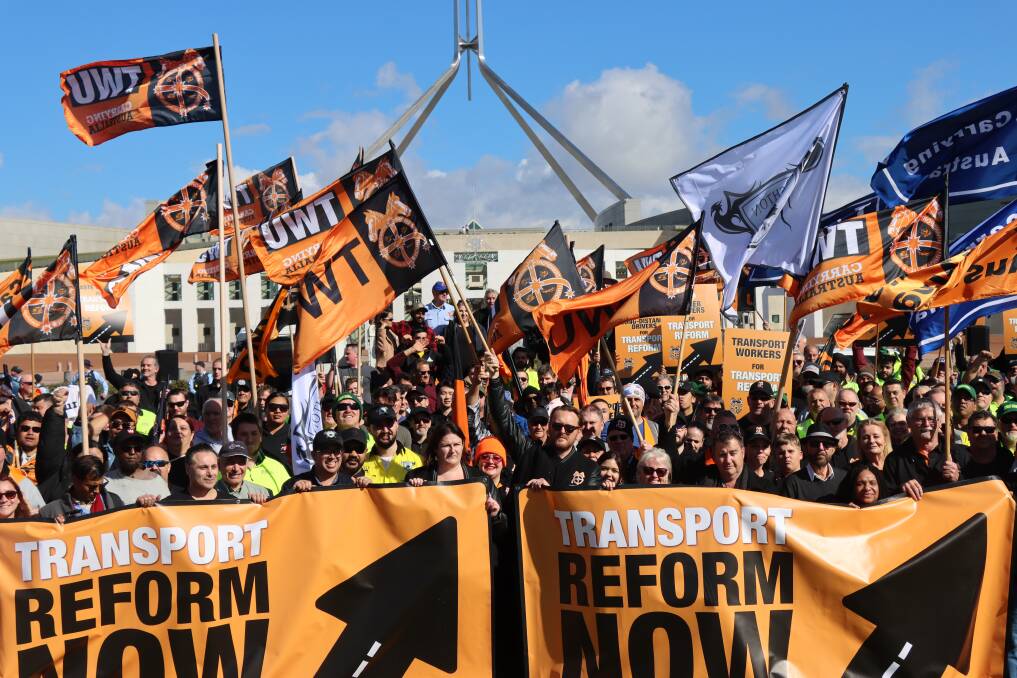
On this May Day, members of the Transport Workers' Union (TWU) including the Newcastle and Northern NSW sub-branch are celebrating a monumental achievement - the passing of transport industry reform through Federal Parliament and soon into law.
This marks a significant turning point not only in New South Wales, but throughout Australia. The legislation will ensure a powerful voice for transport workers, that deadly industry pressures are addressed and provide job security.
For over two decades, TWU members fought tirelessly through convoys, vigils, protests, sit-ins, lobbying, industrial action, petitions, inquiries, and international solidarity efforts. Their unity and dedication follow in the footsteps of May Day's courageous predecessors.
One notable success of their efforts was the establishment of safety charters with retail giants Coles and Woolworths, ensuring supply chain safety. However, the passage of these reforms signifies a broader victory, setting the stage for comprehensive changes in the transport industry.
With the legislation's approval, TWU members are not resting on their laurels. Instead, they are doubling down on their commitment to set decent standards within the industry.
As the new laws take effect, discussions within the industry will resume and efforts to enforce safety standards will be intensified.
The focus now shifts towards other major clients like Aldi, who are urged to prioritise safety in their transport operations supply chain.
The TWU remains resolute in its mission to create a safer, fairer, and more sustainable industry for all transport workers.
This May Day serves as both a celebration of past achievements and a call to action for the ongoing struggle for justice, dignity and safety in the workplace. TWU members stand united, ready to continue their fight for a better, safer and securer future for themselves and their industry.
RTBU NSW standing up for Hunter commuters by calling government to accountAdvertising Feature


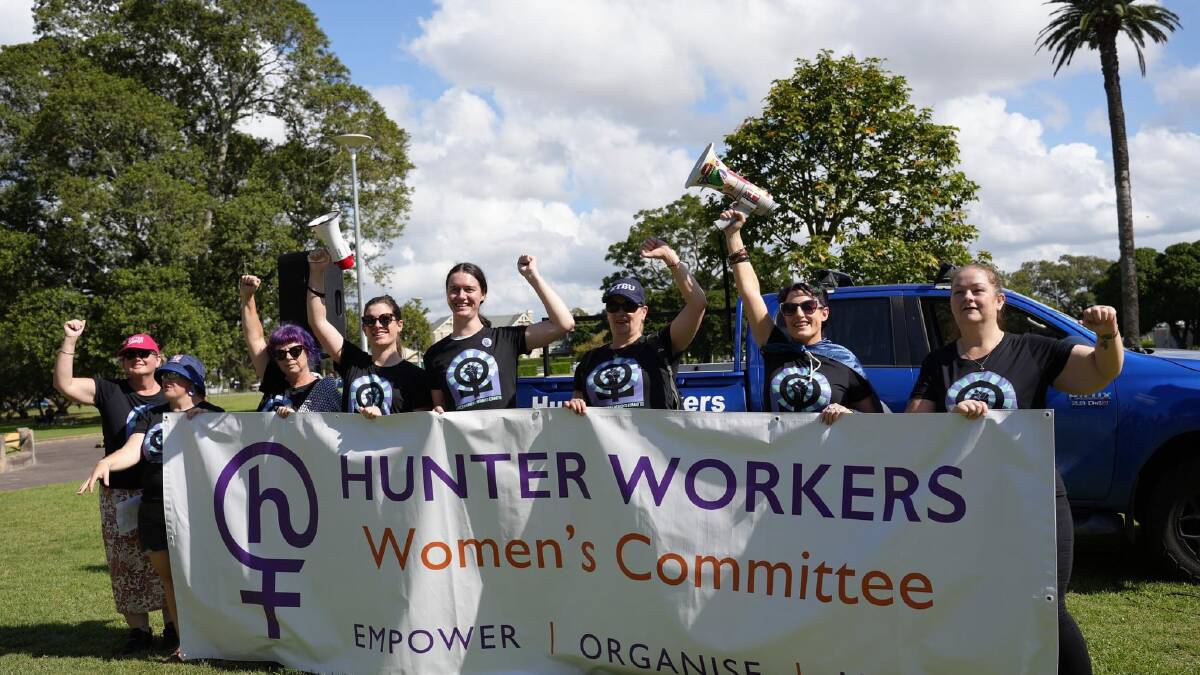
After over a decade of poor transport management and planning, our transport system in the Hunter and across the state finally needs to be prioritised, by increasing commuter services and ensuring future transport projects are built locally.
Rail Tram and Bus Union National Vice President and President of Hunter workers, Leanne Holmes, said Hunter commuters and workers deserve better, which is why the union is calling for change after having seen first-hand what privatisation, outsourcing and mismanagement does to the transport system.
"Over recent years, we have seen bus services and stops axed, rail services cut, and poor government planning combined with the government's decision to fight against common sense and safety has meant the region still hasn't got access to the new fleet of trains that were meant to be delivered years ago," Ms Holmes said.
"The Rail, Tram and Bus Union (RTBU) NSW has been fighting alongside local commuters to improve services in the Hunter, especially in adding in extra services so people can easily get from A to B."
RTBU Branch Secretary, Alex Claassens, said the New Intercity Fleet, currently at Kangy Angy undergoing vital safety upgrades, was a classic example of poor transport planning.
"Rather than build the new fleet of trains here in Australia and consult with experts, the former NSW Government tried to cut corners by going overseas and purchasing off the shelf trains," Mr Claassens said.
"The RTBU NSW won its fight for modifications to the fleet, but a lot of pain and money could have been saved if the government did the right thing by workers and commuters in the first place.
"We've seen similar issues on our regional train fleet. The RTBU is now fighting to ensure the sleeper carriages are maintained following a decision by the former Liberal Government to axe them.
"Building and maintaining our transport here, keeping transport in public hands, and prioritising the safety of commuters and workers is crucial and we'll continue to do whatever it takes to ensure that happens."
Commuters who support calls for improved transport in NSW can join www.ourtransport.org.au
Vital role exists for Newcastle Asbestos & Silicosis Support GroupAdvertising Feature
The diagnosis of an asbestos-related or dust-related disease can be devastating, especially if you are feeling well.
- Newcastle Asbestos & Silicosis Support Group
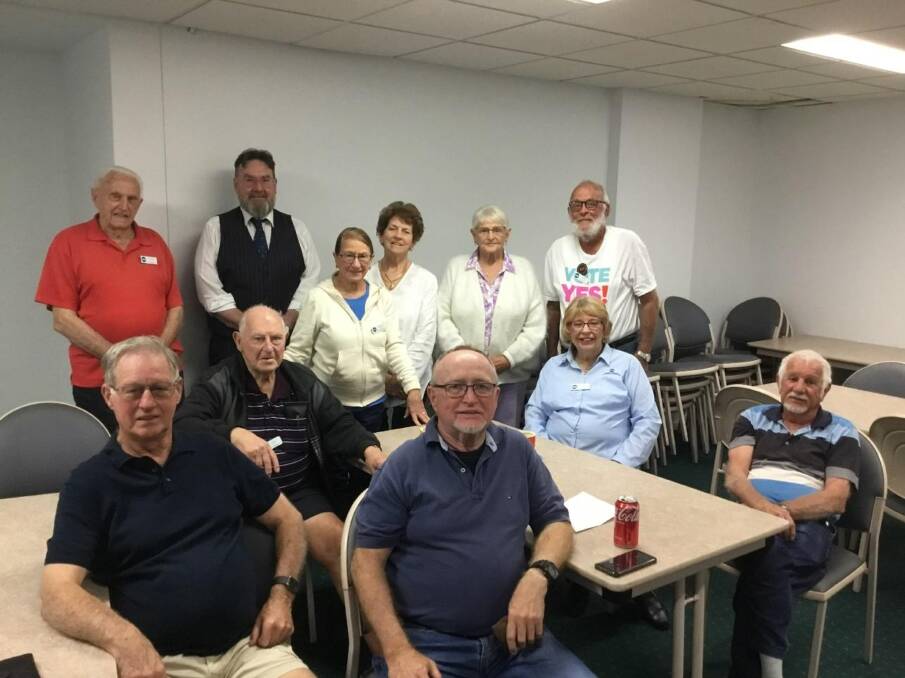
Why an Asbestos & Silicosis Support Group in Newcastle?
Because it's needed.
The Newcastle/Hunter region is home to power stations, quarries, mines and maritime occupations.
Unfortunately, the workers in these industries are more likely to acquire an asbestos or dust disease.
Asbestos Diseases Foundation of Australia (adfa) is a community-based group founded by trade unions, victims and families of victims and concerned citizens to meet the needs of people affected by asbestos and dust diseases.
adfa runs a Support Group on the Central Coast, founded in 2005 to provide support, advocacy and information to people living with an asbestos or dust disease and their friends and families. But the Central Coast can be too far for people of the Newcastle and Hunter areas to come, especially if they are unwell.
Belonging to a support group is like belonging to a family.
Support groups reduce isolation, empower individuals and restore hope.
The diagnosis of an asbestos-related or dust-related disease can be devastating, especially if you are feeling well. You may feel disbelief, confusion or fear that you are suffering alone.
The Convenor of the Support Group can offer direction to those confused and overwhelmed.
Having someone to talk to who understands what you are going through and what lies ahead for you, can be most comforting.
There is also a social aspect to the Support Group. Morning tea or lunch before a Support Group meeting can be an ice breaker and create friendships.
The Support Group Convenor will arrange guest speakers, for example lawyers or doctors, to attend the meetings from time to time.
This offers an opportunity for the members to receive information and ask questions in an informal environment. Outings are also an option.
Winterfest, St Patricks Day and Oktoberfest and other celebrations are often put on by local Clubs.
It can be a good opportunity for the members to go out and enjoy each other's company in a fun and happy environment.
Why should those in the Newcastle/Hunter region be deprived of what is available on the Central Coast?
It just makes sense for Newcastle/Hunter to have their own Support Group.
CBus, created by workers, for workers, celebrates 40 years service in 2024Advertising Feature
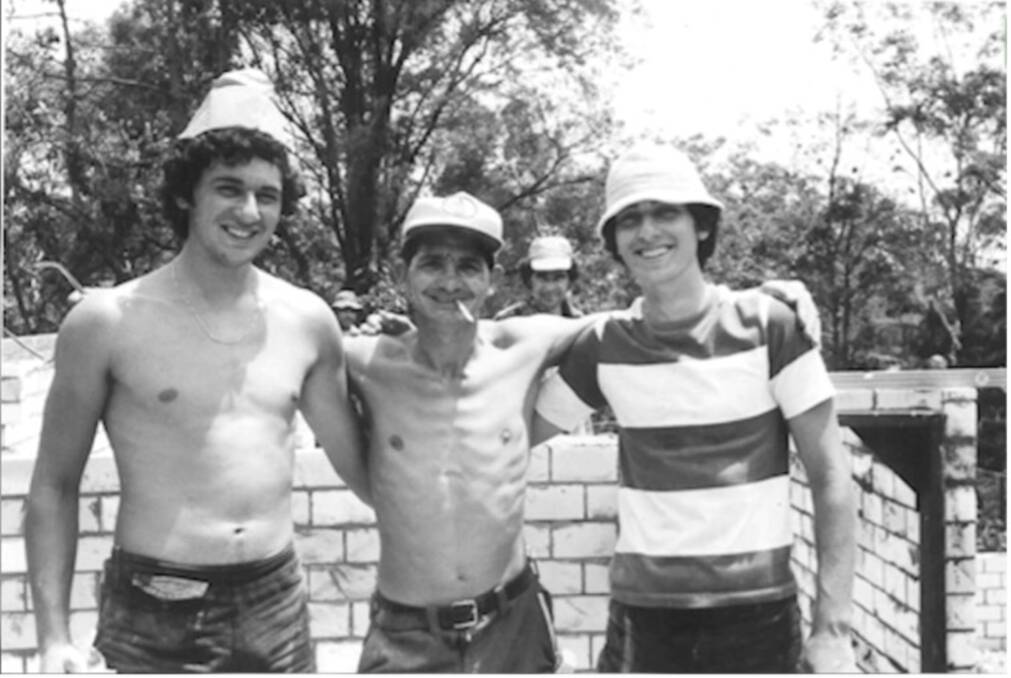
1 July 2024 marks Cbus Super's 40th anniversary since its establishment in 1984.
In the 1980s Cbus's founding members and unions saw inequality in the retirement system and were determined to change it.
They had a better idea: giving workers a say in the way that capital was invested for their futures to achieve an adequate retirement free from worry of going without.
They fought for this reform, from the shop floor, site by site, workplace by workplace - to benefit union members and working people generally.
Cbus was established after a decisive advance by the building unions to convert a wage increase into superannuation.
From Cbus's first members contributing $9 a week in 1984, 40 years later Cbus has grown to 910,000 members with $90 billion funds under management and a solid track record of investment performance.
As at 31 January 2024, the default investment option, Growth (MySuper), has averaged an annual return of 8.89% since inception.
Protecting what really matters
Despite its size today, staff and management at Cbus haven't forgotten where they came from and why they are here.
"We are proud to be one of Australia's leading industry super funds, providing superannuation and income stream accounts to our hard-working members," a spokesperson said.
"We are a fund tailored to our members' circumstances and needs.
"Our insurance model was considered innovative in 1984, because it provided affordable insurance for workers in a dangerous industry - insurance that was otherwise prohibitively expensive for working people.
"To this day, it continues to be an affordable scheme that takes account of the nature of the building and construction industry, providing financial security to members and families in difficult times."
Investing heavily in the building and construction industry
Cbus has a proven track record of investing back into our local communities - supporting industries that are important to members and creating better retirement outcomes.
A wholly owned entity of Cbus Super, Cbus Property is a national integrated property investor and developer, with major investments and developments in the commercial office, residential and retail sectors across Australia.
By investing in the building and construction industry through Cbus Property, Cbus has delivered strong long-term returns for members and created thousands of jobs.
"Our continued commitment to investing in the real economy means we believe we'll be an active participant in affordable housing and the decarbonising economy," the spokesperson said.
In this anniversary year, Cbus thanks its founding members, unions and leaders for their vision, hard work and lasting legacy.
Their collaboration improved, and continues to improve, the lives of working people in this country.
"We will continue to evolve, lead, advocate and create value from the strong foundation and vision that was created four decades ago," the spokesperson said.
To find out more, visit cbussuper.com.au
MEU testing new Same Job Same Pay laws for labour hire workers in HunterAdvertising Feature
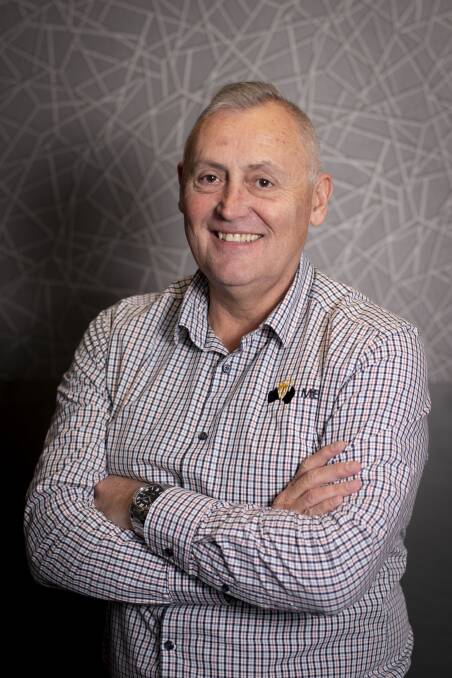
The MEU has made an application for a Same Job Same Pay order for Programmed labour hire production workers at Mount Pleasant coal mine near Muswellbrook.
If successful, the application would result in pay rises of approximately $30,000 to $40,000 a year from November.
It is the first application in NSW and the second nationally under new laws to prevent labour hire workers being paid less than permanents for performing the same work, where a site enterprise agreement is in place.
The new laws allow for applications to be made to the Fair Work Commission (FWC) for Same Job Same Pay. The FWC can determine whether to issue a Same Job Same Pay order, triggering a requirement to pay a 'protected rate of pay' in line with rates in the host employer's Enterprise Agreement.
At Mount Pleasant, which is owned by MACH Energy and operated by Thiess, Programmed labour hire production workers perform the same work on the same rosters, on the same equipment under the same supervision as permanents. The typical labour hire arrangements at the site make it an ideal test case for these new laws.
These applications will be watched closely, and the MEU hopes that they will be dealt with promptly by the Commission and will pave the way for many more applications.
"We understand that many workers across the industry are interested in the timing of applications and when and if an application will be made at their workplace," MEU Northern Mining and NSW Energy District President Robin Williams said.
"The order of applications will be determined in consultation with our highly experienced legal team based on the circumstances at the site fitting requirements of the legislation, density of union membership among the labour hire workforce and member support for the application from labour hire and permanent members.
"After all, MEU members have funded our long campaign for Same Job Same Pay laws for labour hire workers over many years. Our message to all labour hire and contractor mineworkers across the industry is to get on board, join the Union, help us make strong Same Job Same Pay applications.
"Apart from getting to the front of the queue for Same Job Same Pay applications, Union membership gives all members access to our expert workplace support and advice."
The MEU have fought long and hard for new laws to address the labour hire rort.
"Now we are determined to ensure they work as intended to deliver pay rises for labour hire workers and return fairness to our industry," Robin said.
The MEU welcomes permanent, labour hire and contractor members.
Hunter public school students deserve better funding to address inequitiesAdvertising Feature
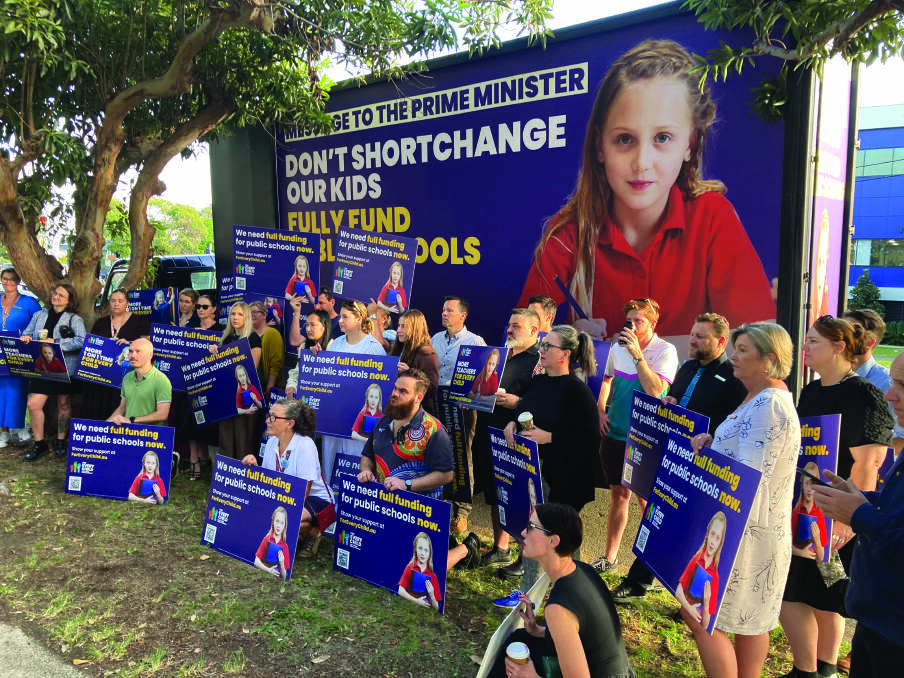
As the President of the NSW Teachers Federation, I have seen firsthand the profound impact that a quality education can have on a child's life.
They can lead fruitful lives, brimming with purpose, where they pursue their passion or interest, make the most of their innate talent and contribute powerfully to their community.
Across the Hunter region, our public schools are unleashing this potential every day, making an immense economic and social contribution.
Our public schools do the heavy lifting, educating a strong majority of students across Hunter communities.
Unfortunately our teachers face an uphill battle due to a sharp lack of funding and resources.
The National School Reform Agreement has left NSW public schools grappling with a funding shortfall of approximately 11 per cent, amounting to $1.9 billion this year alone.
This translates to over 10,000 permanent school-based teachers that our schools desperately need.
The consequences are evident, with Regional North schools (which included the Hunter) reporting 103 vacancies.
This affects more than one third of its 300 schools.
It is disheartening to see private schools in Sydney, which already receive substantial public funding, splurging on unnecessary vanity projects such as equestrian centres and Scottish castles, while our public schools struggle to provide the basic resources and support that our students need.
The inequities in capital funding are becoming starker.
For example, a single Sydney private school spent more on a new pool and expanded facilities in 2021 than governments spent on 2549 public schools educating over 472,000 students.
It is time for our political leaders to step up and address this glaring injustice.
Premier Chris Minns and Deputy Premier and Education Minister Prue Car have taken the first steps by lifting salaries to tackle teacher shortages, but we desperately need the Prime Minister to join the effort.
Proper funding would allow us to hire more teachers, reduce class sizes, and provide the one-on-one attention that students with complex needs require.
Investing in our public schools is not just a moral imperative; it is an investment in our nation's future.
By providing our students with the education they need and deserve, we are empowering them to reach their full potential and contribute back to their communities and the country as a whole.
Our union is steadfast in our fight for funding.
Public school students deserve better, and it is time for our political leaders to take action and ensure that every child, regardless of their background, has access to a high-quality education.
The future of our nation depends on it.
- Henry Rajendra, President, NSW Teachers Federation
ETU members proudly powering the future as region transitions to renewablesAdvertising Feature
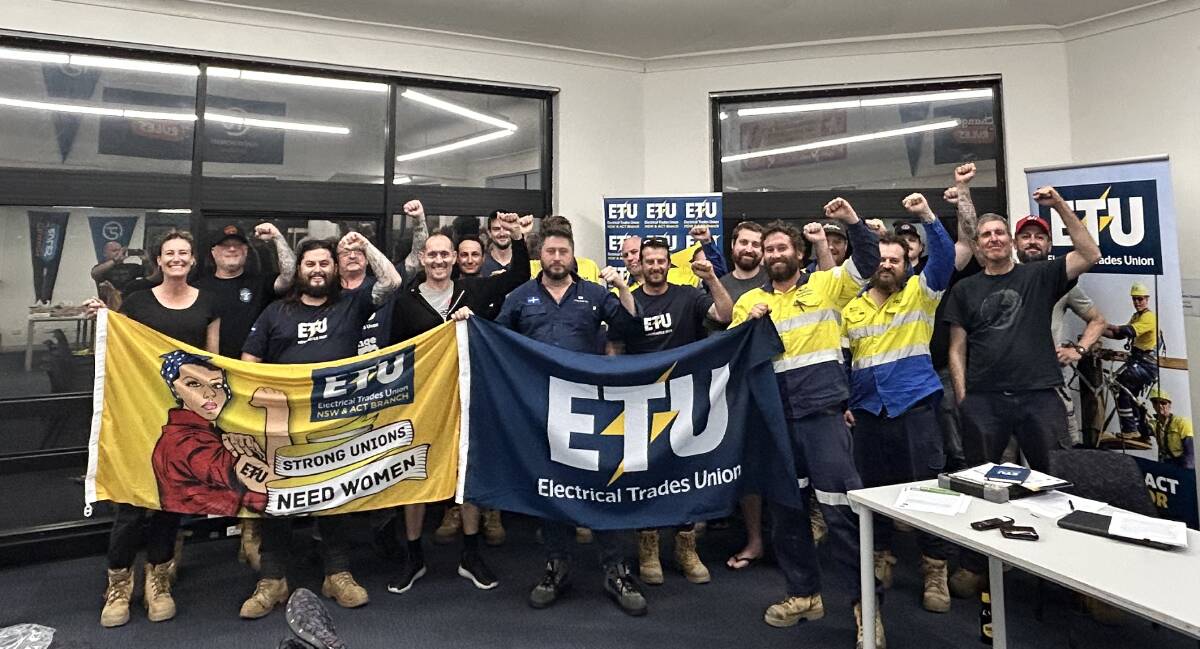
ETU members are ensuring that Newcastle and the Hunter Valley keep the steady heart of power generation in NSW beating, as they transition the region to renewable energy sources.
These regions have long been a vital source of power generation for NSW, from coal mining in the early 1800s to the commissioning of coal-fired power stations from the 1960s.
For over a century, the region has been a key industrial hub of New South Wales, attracting high-skilled workers to unlock its natural resources, and providing jobs with good wages and conditions, long fought for by union members.
Now, as the region evolves to harness cleaner, greener renewable sources of power like solar, wind and hydro, ETU members find themselves at the centre of the transition.
While existing forms of power generation face retirement and decommissioning over the coming decade, electrical workers are already ushering in a booming new era of technology in their place.
ETU members will be instrumental in building and setting up new offshore wind farms off the coast, hooking up new solar farms to the grid and building some of the largest new battery storage projects in Australia.
ETU members will increase self-sufficiency in the solar supply chain through the government's recently announced SunShot Solar Hub, making solar panels right here on Australian soil, where the technology was first invented.
If we get this right, this region will be become a renewable energy superpower, the envy of the rest of the country. And if members stick together, the region will provide great jobs with good wages and conditions, creating benefits that flow through to the families and communities that live work and play there.
Union members have a responsibility to make sure that these emerging industries respect and value the workforce that underpins them, long into the future.
In the recent past ETU members stood strong, particularly in Newcastle and the Hunter against NSW Liberal Government attacks on public ownership of our energy networks during the 'Stop the Sell-off campaign'.
Their efforts, supported by other union members, showed how connected ETU members are to the industries in this region, and how important it is to keep essential electrical assets in the hands of the people.
Through the decades we have fought to protect and strengthen these industries, and make sure they provide for the workers and their communities.
The transition to renewable energy is no different.
If we use our collective power once again, we will ensure that these growing industries, powered by ETU members, look after ETU members in return.
ETU members proudly powering our regions and their future.


